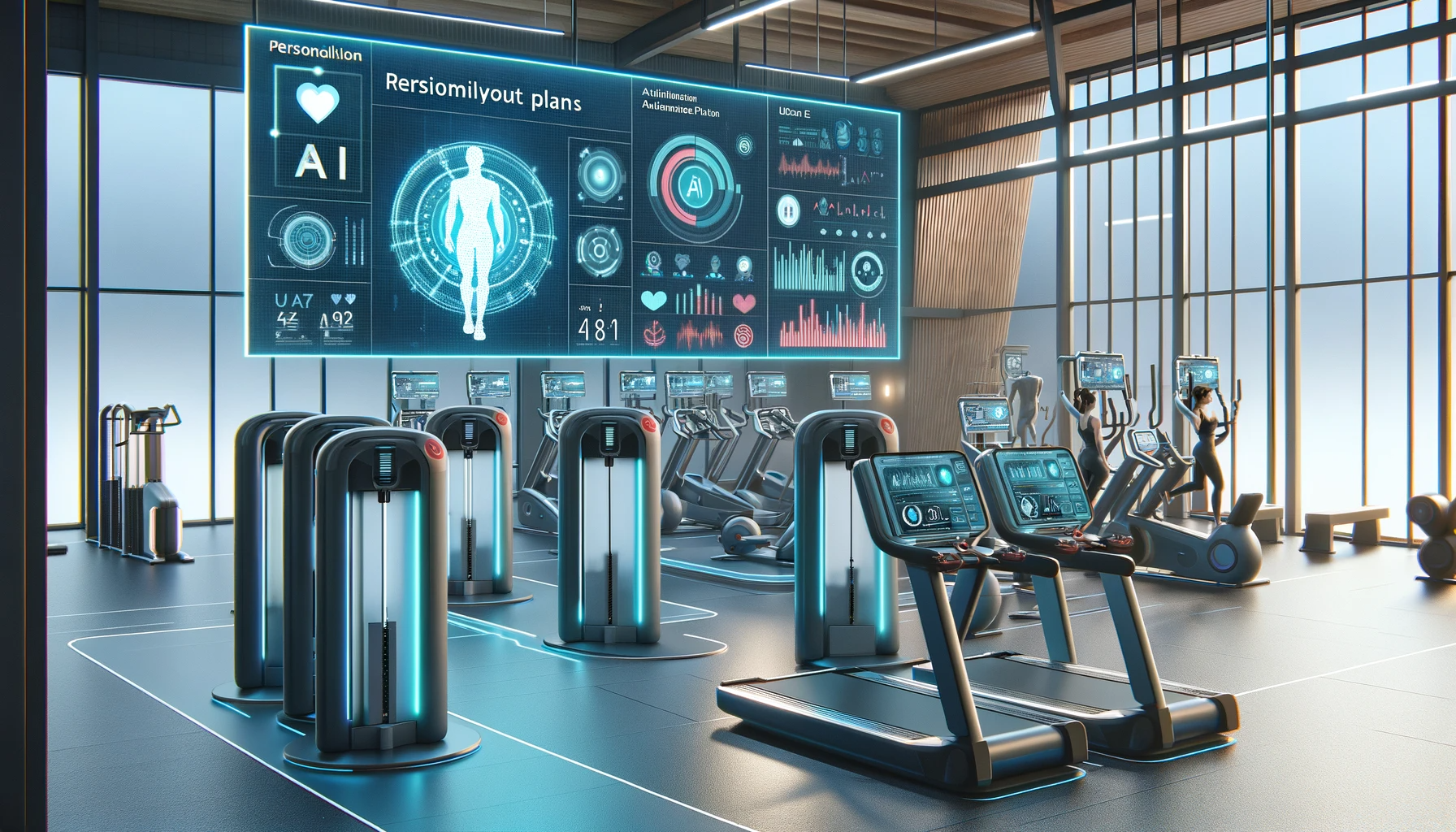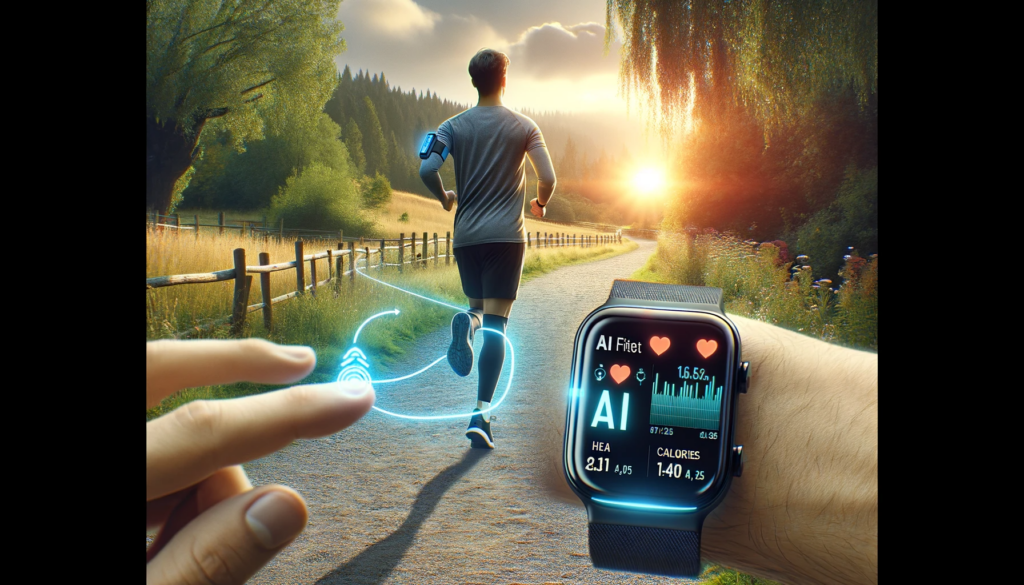In an era where health and well-being take center stage, the concept of fitness and wellness has evolved beyond generic one-size-fits-all approaches. Individuals are increasingly seeking personalized solutions that cater to their unique needs, goals, and lifestyles. This paradigm shift has ignited a revolution in the world of fitness and wellness, and at the forefront of this transformation is artificial intelligence (AI).
This article delves into the profound impact of AI on the personalization of fitness and wellness plans. As we navigate the intricate relationship between technology and well-being, we will uncover the ways in which AI is reshaping how we approach our health and fitness goals.
The Rise of Personalization in Health and Wellness
The quest for improved health and fitness has transitioned from a one-size-fits-all model to a deeply personalized experience. Generic fitness routines and dietary plans have given way to approaches that acknowledge the uniqueness of each individual. This shift is driven by several factors, including a greater understanding of human variability and the recognition that personalized approaches yield superior results.

Personalized fitness and wellness plans offer a multitude of advantages. They not only address the specific goals and preferences of individuals but also enhance motivation and adherence to routines. With a focus on individual needs, these plans are more likely to yield sustainable and long-lasting improvements in health and well-being.
The Role of AI in Personalized Fitness
At the heart of the personalization revolution in fitness and wellness is AI—a technological force that possesses the capacity to process vast amounts of data and generate tailored recommendations. AI is becoming an indispensable tool in creating personalized fitness and wellness plans that optimize outcomes and enhance the user experience.
AI-driven wearables, apps, and devices play a pivotal role in this transformation. These technologies are capable of collecting and analyzing a multitude of health and fitness data points, including heart rate, sleep patterns, physical activity, and dietary habits. The result is a holistic view of an individual’s well-being, enabling AI systems to provide recommendations that are both precise and relevant.
These recommendations extend to exercise routines, nutritional guidance, and lifestyle adjustments. By harnessing AI, individuals can receive personalized exercise programs and dietary plans that align with their unique goals, whether it’s weight management, muscle gain, stress reduction, or improved overall health.
As we continue to explore the interplay between AI and personalization in fitness and wellness, we will uncover the innovative applications and benefits that this technology brings to the pursuit of a healthier and happier life.
Customized Workouts and Exercise Programs
One of the most tangible ways in which AI is transforming personal fitness is through the customization of workouts and exercise programs. AI algorithms, fueled by data collected from wearables and user input, have the capability to craft exercise routines tailored to an individual’s specific needs and preferences.
These AI-generated workouts take into account factors such as fitness level, health goals, time constraints, and even personal preferences for certain types of exercises. Whether someone is looking for high-intensity interval training, yoga, or strength training, AI can create a program that optimizes results and minimizes the risk of injury. Additionally, AI recognizes the importance of variety and adaptability, often modifying routines to prevent plateaus and maintain user engagement.
AI-Powered Nutrition Planning
While exercise is a critical component of fitness and wellness, nutrition plays an equally vital role. AI is revolutionizing the way we approach dietary choices by providing personalized nutrition planning.
Through the analysis of dietary preferences, restrictions, and health goals, AI can generate customized meal plans that align with individual needs. These plans take into account factors such as calorie intake, macronutrient ratios, and dietary restrictions, offering users a practical and sustainable approach to their nutrition.
Furthermore, AI can continuously monitor nutrient intake and adjust recommendations as needed. This dynamic approach ensures that users receive optimal nutrition tailored to their evolving health and fitness objectives.
Monitoring and Feedback for Progress
The integration of AI-powered wearables, apps, and devices into personal fitness and wellness plans offers a continuous feedback loop that is invaluable for progress tracking.
These technologies provide real-time health monitoring, tracking metrics such as heart rate, sleep patterns, activity levels, and more. Users receive immediate feedback on their performance, motivating them to stay on track with their fitness goals.
AI’s role doesn’t stop at monitoring; it extends to adjusting fitness and nutrition plans based on user feedback and performance data. If a particular exercise is causing discomfort or if progress stalls, AI can suggest modifications to keep individuals challenged and motivated. This adaptability is a key factor in the effectiveness of personalized fitness and wellness plans.

The Future of Personalized Fitness and Wellness
As we peer into the future, the impact of AI on personalized fitness and wellness plans promises to become even more profound. Emerging technologies are poised to enhance the capabilities of AI in health and well-being.
We can anticipate the advent of AI-powered virtual trainers that provide real-time guidance and feedback during workouts. These virtual trainers will adapt to users’ needs, offering a level of personalization that was previously unimaginable.
Additionally, AI is advancing predictive health analytics, allowing individuals to take proactive measures in their wellness journey. Health prediction models will provide insights into potential health risks and recommendations for prevention, empowering users to make informed decisions about their well-being.
In conclusion, AI is fundamentally changing how we approach personal fitness and wellness. With its ability to customize workouts, optimize nutrition, monitor progress, and adapt to individual needs, AI is ushering in a new era of health and well-being. As technology continues to evolve, the potential for individuals to achieve their health and fitness goals in a truly personalized manner is brighter than ever before.
